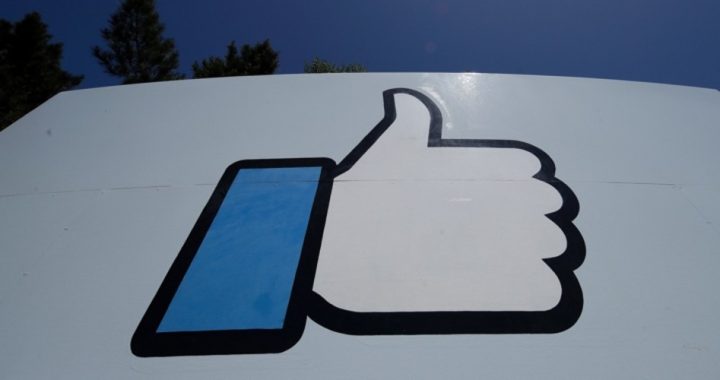
Podcast: Play in new window | Download ()
Subscribe: Android | RSS | More
In a fight that could prove beneficial to the reelection campaign effort of President Donald Trump, Senator Elizabeth Warren publicly attacked Facebook CEO Mark Zuckerberg on Tuesday for his private remarks that he was willing to sue the federal government should Warren win the White House and follow through with her plans to break up his company under U.S. anti-trust laws.
The Sherman Anti-Trust Act passed Congress in 1887, but little was done with it until progressive President Theodore Roosevelt began to use the law to file anti-trust monopoly lawsuits against large domestic companies. Roosevelt eventually filed 44 anti-trust lawsuits, but did not file one against J.P. Morgan of U.S. Steel after Morgan purchased a big competitor, Tennessee Coal and Iron. Roosevelt justified picking and choosing when to file lawsuits and when not to with his rule of thumb that there were “good” monopolies and there were “bad” monopolies.
This, of course, illustrates how giving the federal government this kind of power can be abused. And, while conservatives rightly take offense at how the tech giants are uniformly liberal, we should be very careful about handing any more power to regulate businesses to the federal government.
In the case of Facebook, Warren and other Democrats had little concern when use of the social-media giant’s data of millions of users helped President Barack Obama’s reelection campaign in 2012. But when Facebook data was (allegedly) used for a Russian disinformation campaign during the 2016 presidential contest, many Democrats, including Warren, were outraged.
Warren wants to break up major tech companies, including Facebook, Amazon, and Google. Specifically, Warren wants to terminate the ownership of Whole Foods and Zappo’s by Amazon; Google’s ownership of Double Click, Nest, and Waze; and Facebook’s ownership of Instagram and WhatsApp. Additionally, Warren has expressed intentions to make the companies be considered “platform utilities,” subjecting them to additional government regulations.
This could prove problematic for Warren, however, as it has been reported that some major Democratic donors in big business are against her proposals to increase taxation and regulation on business. Reportedly, Warren’s plans have resulted in some of these big business donors considering not taking either side in the presidential race, or even choosing to support Trump.
In a leaked audio from a private meeting between Zuckerberg and top leaders of Facebook, Zuckerberg referred to Warren’s announced plans to break up big tech companies as an “existential” threat. During the meeting, someone brought up Warren and her plans, to which Zuckerberg responded, “If she gets elected president, then I would bet that we will have a legal challenge, and I would bet that we will win the legal challenge. And does that still suck for us? Yeah. I mean, I don’t want to have a major lawsuit against our own government.… It’s like, we care about our country and want to work with our government and do good things.”
Zuckerberg added, “But look, at the end of the day, if someone’s going to try to threaten something that existential, you go to the mat and you fight.”
Warren responded on Twitter: “What would really ‘suck’ is if we don’t fix a corrupt system that lets giant companies like Facebook engage in illegal anticompetitive practices, stomp on consumer privacy rights, and repeatedly fumble their responsibility to protect our democracy.”
When Warren first promised to break up the Big Tech companies in March, she said, “Today’s big tech companies have too much power — too much power over our economy, our society, and our democracy. They’ve bulldozed competition, used our private information for profit, and tilted the playing field against everyone else.”
Conservatives largely share this animosity toward Amazon, Google, and Facebook, because these tech giants routinely slant their platforms in favor of liberal causes. But breaking them up into smaller units would probably not solve that problem, as they would then simply be smaller liberal platforms. Some have argued that tech platforms are like telephone utilities, or electric utilities, and surely the day will never come when telephone companies cut off telephone service to individuals or businesses because they are politically conservative.
But who would have thought that companies such as Facebook or Twitter would censor posts or delete accounts simply because they don’t like the political views expressed, such as when Facebook removed a post containing a photograph of a recent cover of The New American magazine that opposed illegal immigration.
It certainly is enjoyable to see leftists fighting each other, to the extent that it might hurt their chances of electing a socialist-leaning politician such as Elizabeth Warren in 2020. Pass the popcorn.
Photo: AP Images
Steve Byas is an instructor in history and government at a university, and the author of History’s Greatest Libels, in which he challenges some falsehoods directed at some important historical figures such as Thomas Jefferson, Joe McCarthy, and Christopher Columbus. He can be contacted at [email protected]



